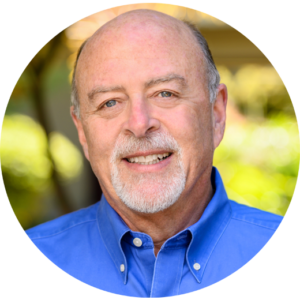
In my communication coaching practice, I have to admit I’ve struggled to find a reliable way to help people reduce their anxiety about public speaking, despite my years of trying.
Calm Your Fears About Public Speaking
I’ve advised people to do just about anything I could think of that might help: move your body around while speaking, meditate, visualize, breathe, exercise, go for a walk before a presentation, etc.
Don’t get me wrong — all of these things are good to do and some of these techniques do work for some people.
If it works for you, do it! I’d never tell you to stop doing something that helps you feel less nervous and more confident about presenting to an audience, large or small.
While I haven’t found the thing that works every time for every person, there is one technique I’ve found to be more effective than others. In fact, I receive the best feedback about this technique, far and above any others I’ve taught.
It’s not a physical technique like most public speaking tips, but rather a psychological one. And I’m going to ask you to try it, even if you’ve already found something that works fairly well for you.
Be the Best Person You Can Be
What I want you to do is, think about times in your life when you’ve been the best possible person you can be.
For many people, it’s when they’ve acted in service to others. For example, maybe it was when you volunteered to serve a meal at a local homeless shelter on Thanksgiving or another holiday. Maybe it was when you did a good deed for someone you didn’t know, or even for a neighbor, coworker, or relative.
In other words, it was when you performed an act of kindness simply because someone needed your help, even though it may have cost you time, money, or some other inconvenience.
If you have kids or take care of an aging parent, then undoubtedly there have been times when you’ve had to set your own discomfort, illness, or pain aside to help them. Despite your own suffering, you chose to put their wellbeing first.
In my humble opinion, this is when people truly are at their best — when putting others first. Selflessness, or putting the interest of others’ above your own, defines what it means to be heroic, compassionate, inspiring — even what it means to be a great leader.
What does any of this have to do with anxiety about public speaking?
Put Audience Needs Above Your Own
What if you put your audience’s needs first?
What if instead of focusing on yourself and your insecurities and fears about how audience members might judge you, you put your focus on them? What if you focused on how you could help them, instead of worrying about how they’ll respond to you?
When presenters start to get nervous, it’s usually due to one reason: being too “me-focused.” In other words, they’re up in their own heads, worrying about themselves and what their audience is thinking about them.
Next time you find yourself doing this, take a pause. Immediately refocus on the people in your audience — people who have taken the time to listen because they need your information, opinion, expertise, or experience.
Be there for them, not for yourself. Look them in the eye. Don’t just look at them — see them. Focus on them. Get out of your head and be present there with them.
Focus on giving listeners the gift of whatever it is you have to offer. Because the truth is, it’s not about you. It’s about what you can do for them. How can you help them with the information or expertise you have?
Redirect Your Focus Outward
If you can redirect your focus outward in this way, I promise you’ll immediately feel better. Less anxious. More relaxed. Take the pressure off of yourself and use that reclaimed energy to give to others.
Set your gaze outward. Do it often enough that it becomes second nature. Practice a “you-focused” mindset instead of a “me-focused” mindset.
If my 30 years’ experience as an executive communication coach prove true, you’ll become a less nervous and more confident presenter or public speaker. And, arguably, a better person too.
For more on becoming an Extraordinary Presenter, visit our full set of Communication Skills courses here.
Originally published in 2019 on Mandel Communications' blog.
Authors:


